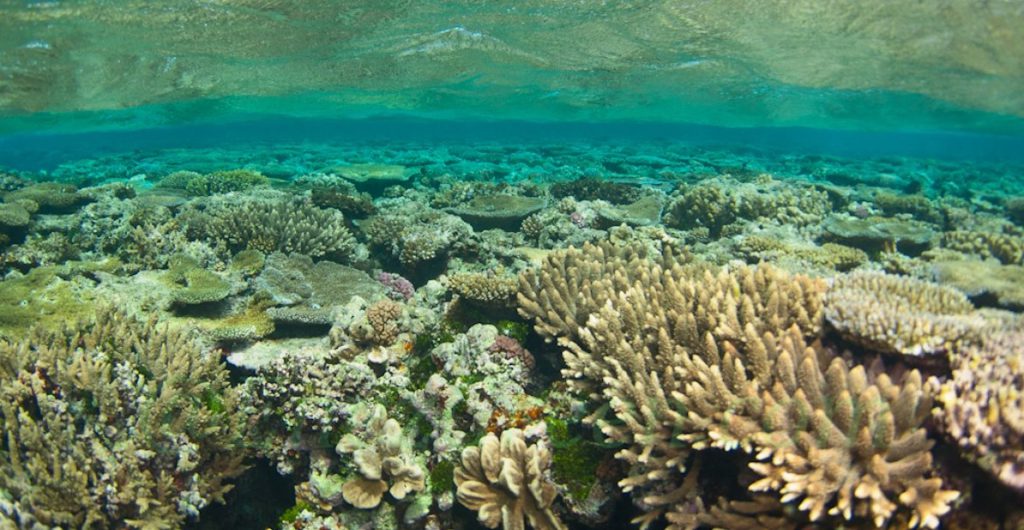New Caledonia coral reefs suffer a few weeks ago from a massive bleaching event. Listed since 2008 as World Heritage by Unesco, the Caledonian reef is the Great Barrier Reef with the longest coral formation in the world.
Rising surface temperatures would be responsible for bleaching events
Renowned to be in good condition, they had so far escaped this phenomenon. Although several episodes have been reported in the past, they were localized or had touched some species while other reefs around the world suffered a massive bleaching. The observations carried out over several weeks by IRD researchers, but also by the Paladalik association and the lagoon users highlight the extent of the spatial scale but also at the species level.
The coral bleaching is generally induced by sudden environmental changes that exceed the capacity of acclimatization corals, such as significant UV radiation, reduced salinity or bacterial infections. However, the increase in surface temperatures (only 1 to 2 ° C) for weeks, seems to be responsible of most bleaching phenomena observed at large scale.



